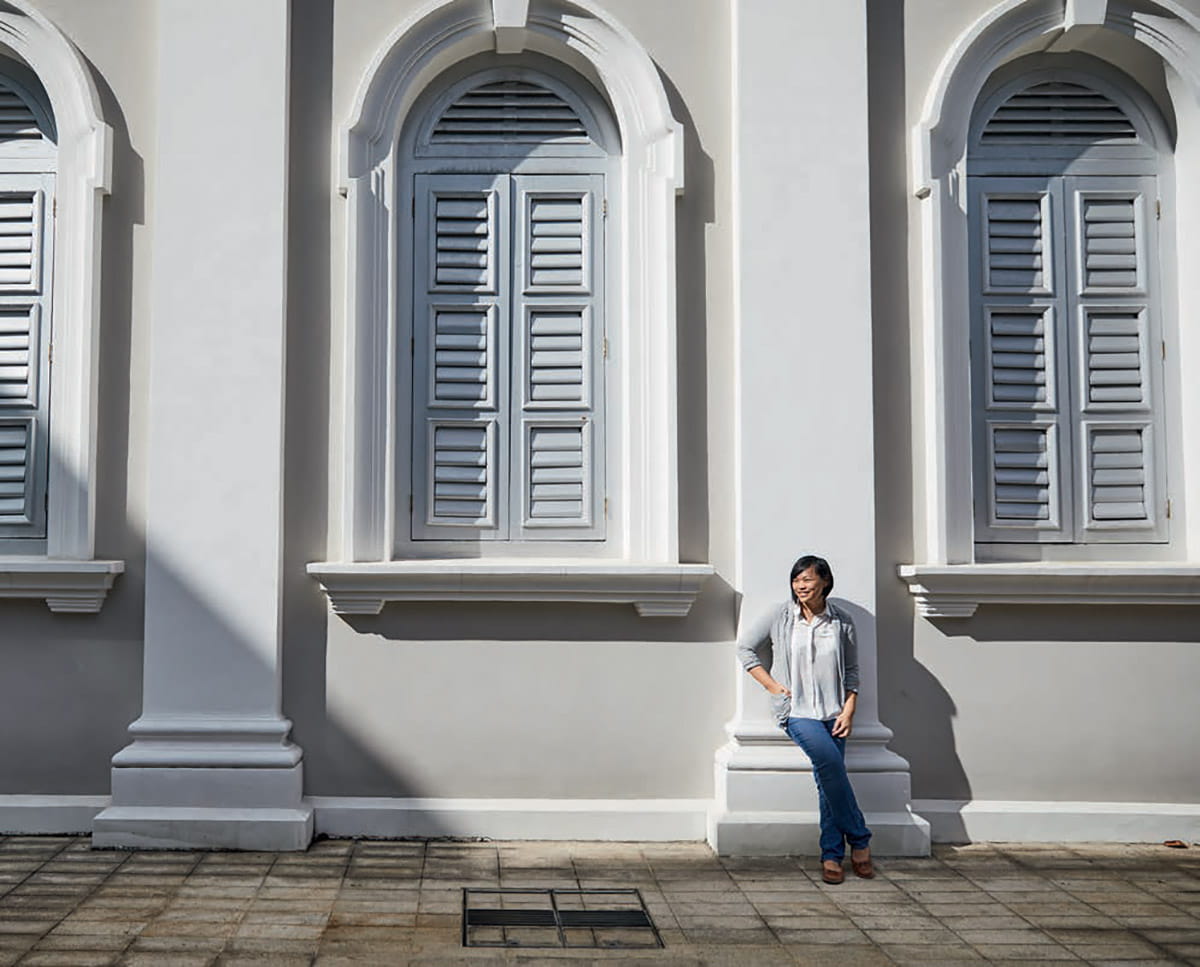Stories > The Thought Provocateur
The Thought Provocateur

Kuik Shiao-Yin is co-founder and creative director of The Thought Collective, a collection of social enterprises that aims to build up the social and emotional capital of Singapore, and create a generation of socially minded citizens.
Co-founder and director of The Thought Collective KUIK SHIAO-YIN shares how she has used creative avenues to make building bridges between different perspectives a key part of her life, as well as the challenges that come with it.
PHOTO JASPER YU
hat do you do when you meet someone who does not believe in or trust what you say or do? For many of us, the first instinct is selfprotection. We hide, stonewall, or show contempt. But if all of us reacted this way, what kind of world would we build? And would we enjoy living in it?
In recent years, I have focused on building bridges between people through my work at The Thought Collective, a group of social businesses that my friends and I co-founded in 2002 to help Singapore become stronger socially and emotionally.
One recent project, The DMZ (“Demilitarised Zone”) Dinners, are about getting people from different races, languages and religions to sit down for dinner together. A table facilitator helps diners find common ground on differing points of view. Each dinner is a “peace talk”; a chance to negotiate relationships, and connect with the persons behind the perspectives.
We first produce videos featuring small groups of strangers with differing backgrounds and viewpoints discussing race, language, and religion over dinner. They cover questions like: “Why are we scared to even talk about race?” and “How can foreigners and Singaporeans get along better?”. Each video ends with an invitation to viewers to sign up for a series of free public community dinners centred around the questions discussed in it. You “pay” by submitting a story on why the issues discussed matter to you.
The Dinners were supported by the Singapore Kindness Movement, a non-governmental organisation that aims to encourage graciousness in society. We’ve run two seasons so far. The first focused on general issues related to race, language and religion. The second centred on encouraging conversation between Muslims and non-Muslims. We partnered the Harmony Centre, a non-governmental organisation that promotes inter-faith understanding; we wanted people to share their thoughts on what we can all do about growing global Islamophobia. The dinners were held in a mosque; for many participants, it was their first time being in one.
The DMZ Dinners are not about changing people’s beliefs, but about providing a safe space for people to share their experiences and, in the process, helping to open their minds.
“The most difficult thing about bridge-building is having to to be constantly open to the idea that you could be wrong. Not everything that we believe to be fact is true. Only with humility can we meet others where they are and connect on a human level. ”
Kuik Shiao-Yin, Nominated Member of Parliament and co-founder of The Thought Collective
The biggest challenge in building bridges is that we can get misunderstood. When this happens, it’s important to keep our focus on the relationship and the long-term result we want, rather than our need to be right in the short-term.Fighting for your own point of view only entrenches differences.
The most difficult thing about bridge-building is having to be constantly open to the idea that you could be wrong. Not everything we believe to be fact is true. Only with humility can we meet others where they are, allow ourselves to feel what they feel, and connect on a human level.
People may argue, “Why should I care about their feelings when there are important facts that must be stated?” But if we do not first empathise, we will not stand a chance to share the significance of the facts we see.
Trust is built upon four foundations: “Do you care?”, “Are you sincere?”, “Are you competent?” and “Are you reliable?”. Lack of genuine care can severely undermine the trustworthiness of even the most competent and reliable of people.
I hope more Singaporeans choose to build bridges in a world of walls. It may look overwhelming and pointless to start. But small efforts made with genuine heart will go a long way in shoring up trust in our society and creating a gentler world that all of us can enjoy living in.
